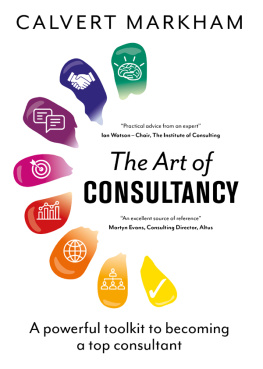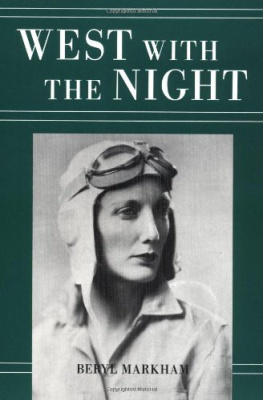Monographs in German History
Volume 1
Osthandel and Ostpolitik: German Foreign
Trade Policies in Eastern Europe from
Bismarck to Adenauer
Mark Spaulding
Volume 2
A Question of Priorities: Democratic Reform
and Economic Recovery in Postwar Germany
Rebecca Boehling
Volume 3
From Recovery to Catastrophe: Municipal
Stabilization and Political Crisis in Weimar
Germany
Ben Lieberman
Volume 4
Nazism in Central Germany: The
Brownshirts in Red Saxony
Christian W. Szejnmann
Volume 5
Citizens and Aliens: Foreigners and the
Law in Britain and the German States,
17891870
Andreas Fahrmeir
Volume 6
Poems in Steel: National Socialism and the
Politics of Inventing from Weimar to Bonn
Kees Gispen
Volume 7
Aryanisation in Hamburg
Frank Bajohr
Volume 8
The Politics of Education: Teachers and
School Reform in Weimar Germany
Marjorie Lamberti
Volume 9
The Ambivalent Alliance: Konrad Adenauer,
the CDU/CSU, and the West, 19491966
Ronald J. Granieri
Volume 10
The Price of Exclusion: Ethnicity, National
Identity, and the Decline of German
Liberalism, 18981933
E. Kurlander
Volume 11
Recasting West German Elites: Higher Civil
Servants, Business Leaders, and Physicians
in Hesse between Nazism and Democracy,
19451955
Michael R. Hayse
Volume 12
The Creation of the Modern German Army:
General Walther Reinhardt and the Weimar
Republic, 19141930
William Mulligan
Volume 13
The Crisis of the German Left: The PDS,
Stalinism and the Global Economy
Peter Thompson
Volume 14
Conservative Revolutionaries: Protestant
and Catholic Churches in Germany After
Radical Political Change in the 1990s
Barbara Thriault
Volume 15
Modernizing Bavaria: The Politics of Franz
Josef Strauss and the CSU, 19491969
Mark Milosch
Volume 16
Sex, Thugs and Rock N Roll. Teenage Rebels
in Cold-War East Germany
Mark Fenemore
Volume 17
A Single Communal Faith? The German
Right from Conservatism to National
Socialism
Thomas Rohrmer
Volume 18
Selling the Economic Miracle: Economic
Reconstruction and Politics In West Germany,
19491957
Mark E. Spicka
Volume 19
Between Tradition and Modernity: Aby
Warburg and Art in Hamburg's Public
Realm 18961918
Mark A. Russell
Volume 20
Cultures of Abortion in Weimar Germany
Cornelie Usborne
Volume 21
Environmental Organizations in Modern
Germany: Hardy Survivors in the Twentieth
Century and Beyond
William T. Markham
Published in 2008 by
Berghahn Books
www.berghahnbooks.com
2008, 2011 William T. Markham
First ebook edition published in 2011
All rights reserved. Except for the quotation of short passages
for the purposes of criticism and review, no part of this book
may be reproduced in any form or by any means, electronic or
mechanical, including photocopying, recording, or any information
storage and retrieval system now known or to be invented,
without written permission of the publisher.
Library of Congress Cataloging-in-Publication Data
Markham, William T., 1946
/ William T. Markham.
p. cm. (Monographs in German history ; v 21)
Includes bibliographical references and index.
ISBN 978-1-84545-447-0 (hbk) -- ISBN 978-0-85745-172-9 (pbk) -- ISBN 978-0-85745-030-2 (ebk)
1. Environmental protectionGermanyHistorySocieties, etc. I. Title.
TD171.5.G3M36 2008
333.7206'43dc22 2008017885
British Library Cataloguing in Publication Data
A catalogue record for this book is available from the British Library
ISBN 978-1-84545-447-0 (hardback)
ISBN 978-0-85745-172-9 (paperback)
ISBN 978-0-85745-030-2 (ebook)
This book is dedicated with great affection to Charles M. Tolbert,
mentor and friend of over forty years.
ACKNOWLEDGEMENTS
As a person who spent most of his career writing journal articles, I used to glance through the long lists of acknowledgements at the beginning of scholarly books with amazement. How could the authors run up so many intellectual and personal debts in the course of a single research project, I wondered? And why did they seem to feel so deeply about them? Now, at the end of a nine-year project of my own, I know the answers to both those questions, for I too now have a long list of people and organizations to thank and a deep sense of gratitude to all those who helped along the way.
First, my thanks to Helmut Wiesenthal, Emeritus Professor of Political Science at Humboldt University. In 1999, he responded positively to a request for a visiting appointment from a stranger who wanted to begin work in a new research area in a new country. Without the nine-month research appointment he arranged for me at Humboldt's Institute for the Social Sciences, there could have been no book. Professor Wiesenthal also used his many connections to the German environmental movement and Green Party to help me arrange many of the interviews for this book. I hope the book represents a good return on his investment.











